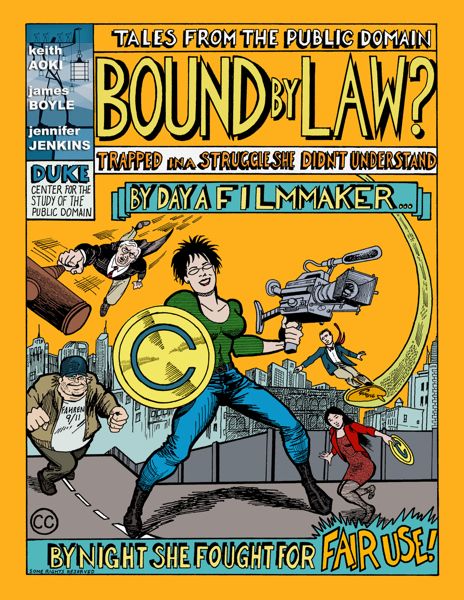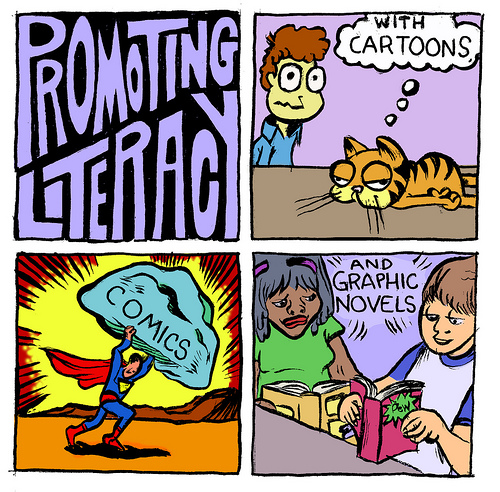
Bound by Law
Whenever I talk to teachers about using materials gleaned from the internet or about student products (especially multimedia creations) the conversation invariably turns to copyright. Is is okay to use cartoons from a web site in our lessons? Can students use pictures they find on the web to create their own comics?
The copyright law is complex and the fair use guidelines are just that – guidelines. It’s difficult for educators to know what they can and cannot do when it comes to using other’s intellectual property. A teacher’s occasional use of excerpts or images from published works in classroom lessons is probably fair use. Republishing someone else’s work on the school web site or in a newsletter that goes home to parents probably is not. While I’m not an expert on copyright, I usually give teachers one piece of advice – try to set a good example for your students.
When students ask me about using images from the web or music from their CDs in their projects, I first encourage them to create their own instead. I’m often amazed at what students can do when we set the bar high and challenge them. If they cannot produce original images or music, they should be taught how to search for Creative Commons licensed media.
Recently I was searching for resources for helping teachers answer copyright questions and I came across, of all things, a comic book about copyright! Bound by Law is a publication from Duke ‘s Center for the Study of the Public Domain. It’s an engaging comic that looks at copyright, public domain, and fair use through the eyes of a young documentary film maker. This is another example of how a comic book becomes an effective teaching tool. It takes a complex concept and presents it clearly and simply in a visual format that middle or high school students will appreciate. This comic has a Creative Commons Attribution, Non-Commercial, Share-Alike license. It’s offered for free in several digital formats or you can buy a print copy from Amazon.






